Exhibits
“Hard-boiled” entered American slang after World War I when drill sergeants turned civilian boys into soldiers. The term referred to those individuals who adopted a tough, unsentimental point of view. Although the first piece of noir fiction appeared in the late 1920s, the sub-genre only began to flourish with the development of paperback originals in the 1950s. Publishers of this format proved less inhibited with regard to sex, violence, and a cynical tone. Hard-boiled novels lacked many of the traditional elements found in the English drawing-room mysteries, focusing instead on “real” crime and criminals, the working classes, and urban locales. The prose of noir authors reflected these settings and situations in their adoption of slang and colloquialisms. Wisecracks demonstrated a dislike for authority figures.
Earle Basinsky & Charlie Wells
The two authors displayed here are a well-matched pair. Both men were born in Mississippi; both published one hardback, hard-boiled mystery followed by one original paperback; and both dedicated their first books to bestselling noir author Mickey Spillane, who provided blurbs for all four works.
Earle Basinsky was born in 1921 in Vicksburg, Mississippi. He began attending the University of Mississippi in 1939, and left the law school in 1942 to join the U.S. Air Force. He became buddies with Spillane while in training at the air base in Greenwood, Mississippi. After the war, Basinsky moved to New York briefly where he worked with Spillane. Eventually, Basinksy returned to Vicksburg and his father’s printing business, but a visit by his famous pal in 1953 rekindled his writing ambitions. In 1955, E.P. Dutton published The Big Steal as a “Guilt Edged Mystery.” A police detective falsely accused of stealing ransom money loses his job, his wife, and his friends. On his own, he uncovers the real villain and extorts his own brand of justice. A year later, Signet released Death Is a Cold, Keen Edge in which a psychopathic World War II veteran goes on a killing spree.
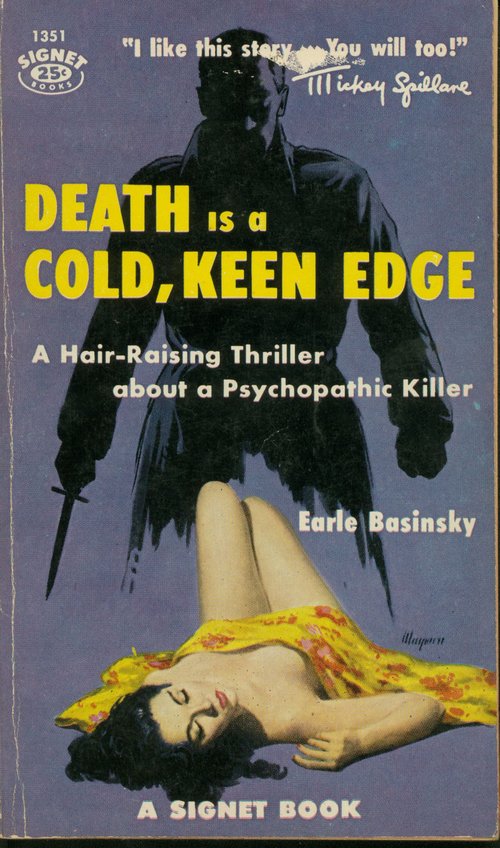
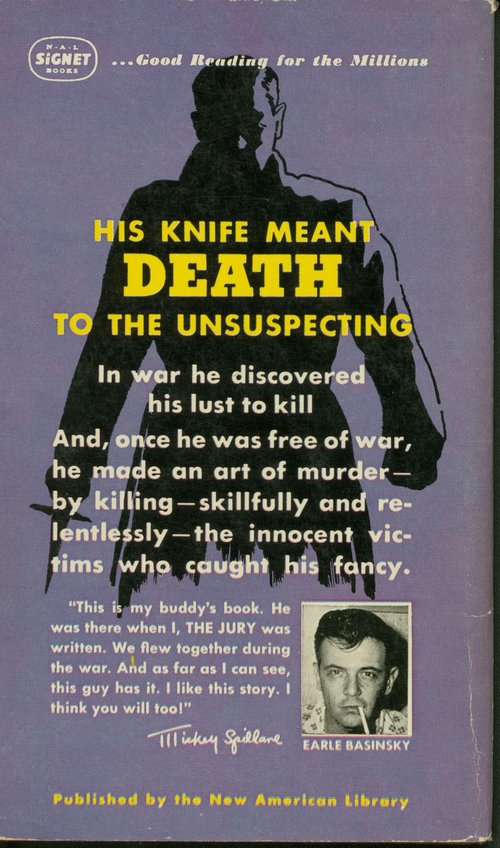
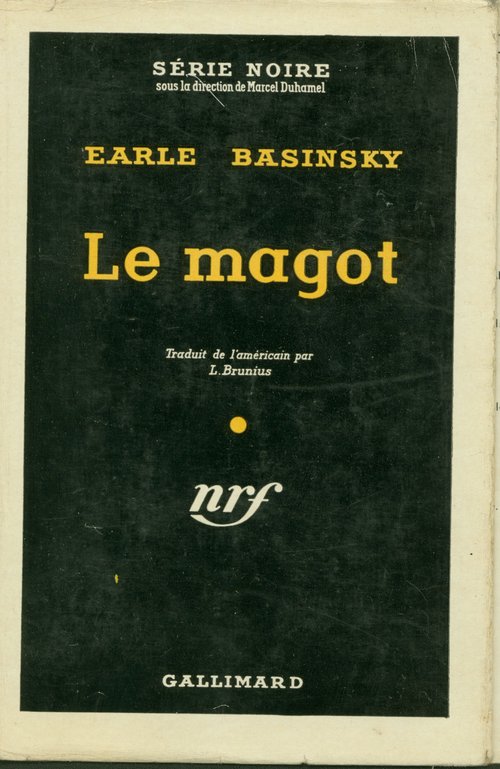
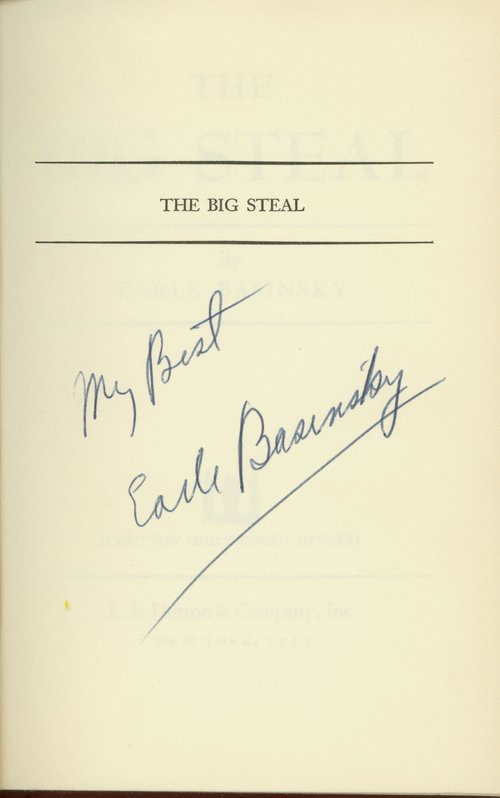
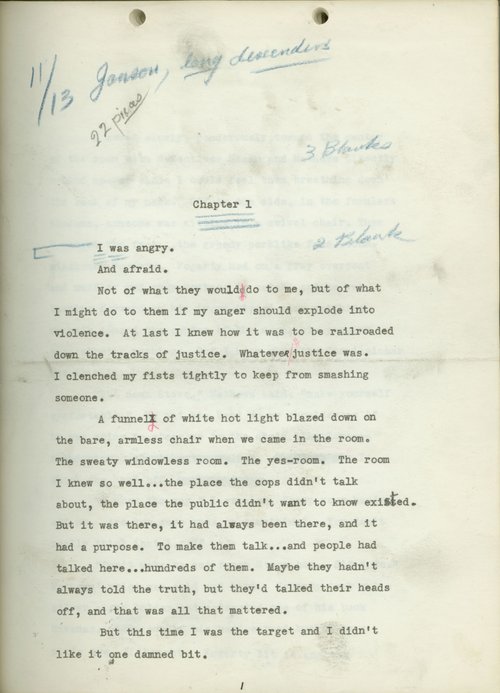
Born in Greenwood, Mississippi in 1923, Charlie Wells worked as a draftsman, a bank messenger, and a drummer in a dance band. During World War II, he served in an anti-aircraft battalion and a field artillery unit in Europe. Wells worked with Spillane for a year before Abelard Press published Let the Night Cry (1953), in which a New Orleans ex-con becomes entangled in a web of vengeance. The Last Kill (1955) finds a Memphis private eye tracking the murderer of a friend who knew too much about a million-dollar heist. Robert Maguire, one of the great cover artists of the period, provided the illustrations for both The Last Kill and Death is a Cold, Keen Edge.
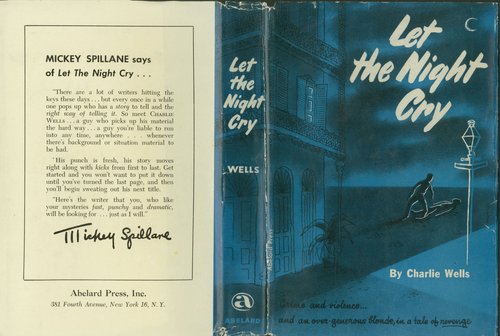
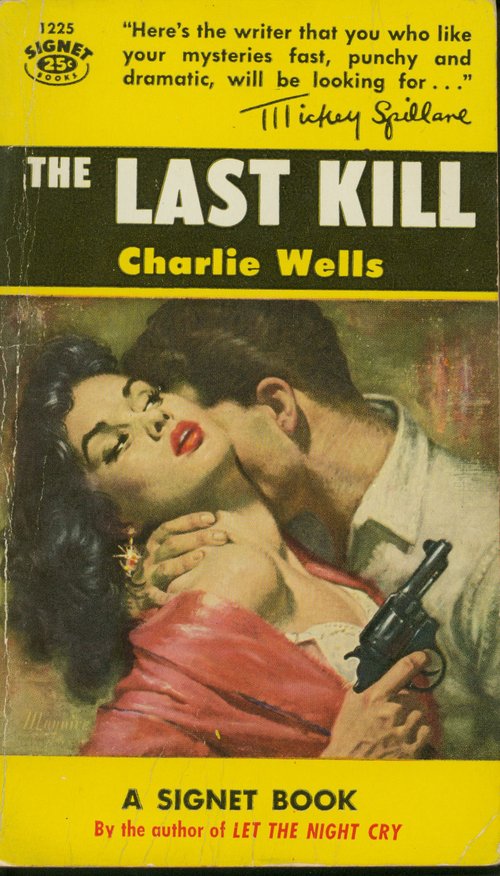
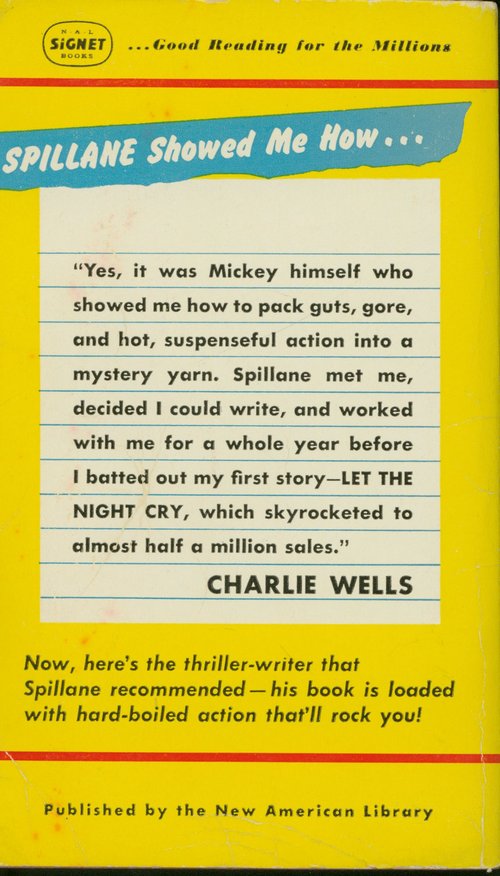
Something else. When I think of librarians I immediately conjure up sweet, gentle, grey-haired, low-voiced old ladies, anxious to please you if they can only find their spectacles and locate you. That led to my first shock. Behind the desk sat a sweet, gentle, sultry-voiced brunette. She found me with deep brown eyes, smiled at me with full, soft lips and woke my long-dead, deeply buried thirst for knowledge with a suggestive, “May I help you?”
-- Charlie Wells, The Last Kill, p. 20.
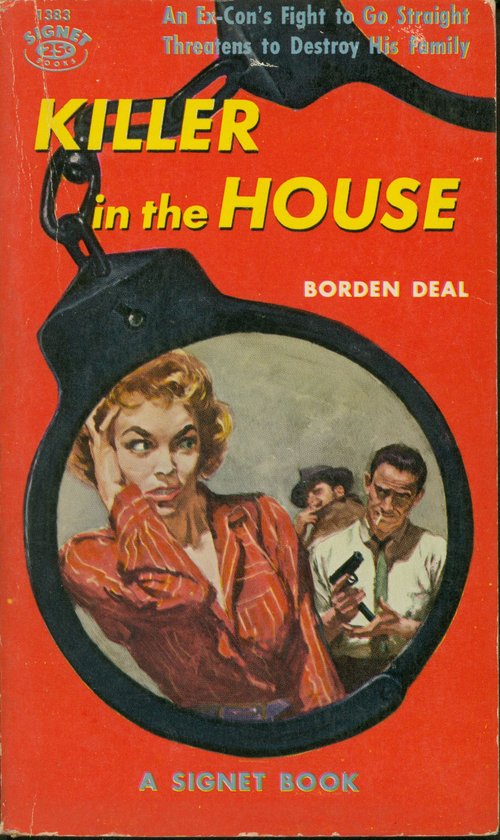
Borden Deal
Born in Pontotoc, Mississippi in 1922, Borden Deal (whose given name was Loyse Youth Deal) also spent part of his childhood in Ingomar, Enterprise, and New Albany. After school, he joined the Civilian Conservation Corps and served in the navy during World War II. Deal graduated from the University of Alabama in 1946 with a major in English and a minor in creative writing. Although better known for his literary novels set in the New South, Deal also wrote a number of thrillers and romances, occasionally publishing them under assumed names, such as Lee Borden for the 1961 gaslight tale The Devil’s Whisper. In Killer in the House (1957), criminals threaten an ex-con’s family in order to gain his assistance in their schemes.
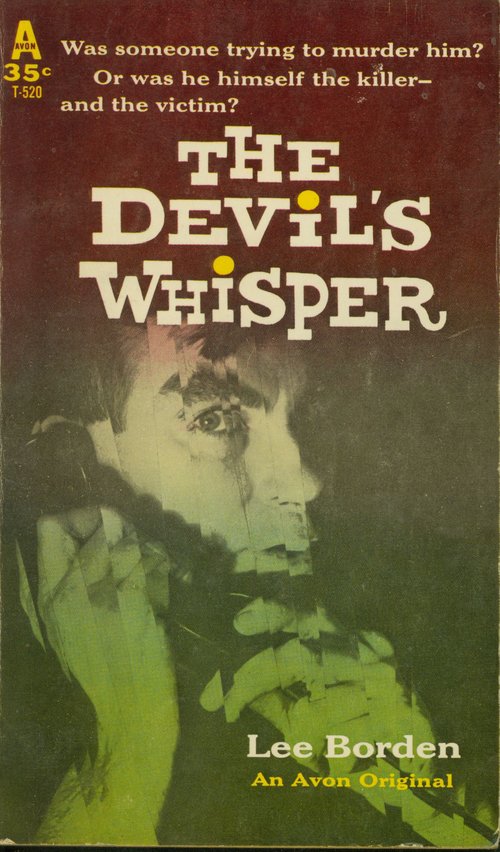
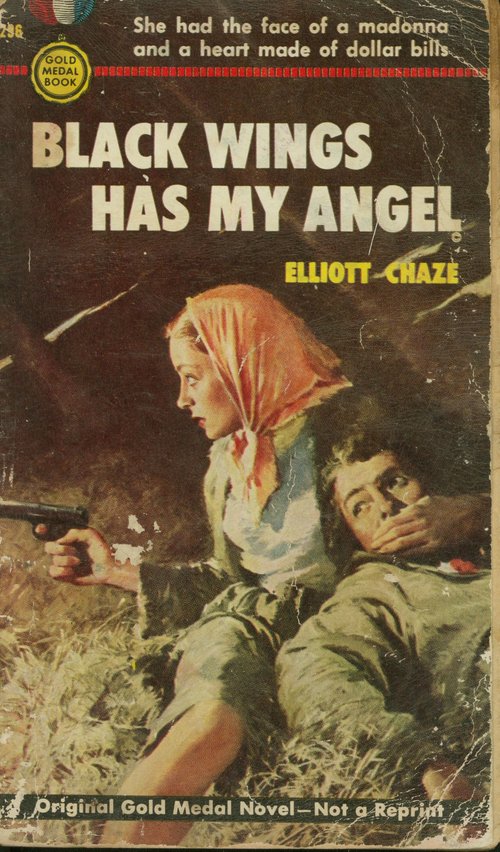
Elliott Chaze
Born in Mamou, Louisiana in 1915, Elliott Chaze worked for the New Orleans bureau of the Associated Press after college. During World War II, he was a paratrooper in the 11th Airborne Division and served in the Army of Occupation in Japan. Returning to civilian status, Chaze worked for the Associated Press until 1951, when he moved to Mississippi and joined the newspaper staff of the Hattiesburg American. From 1970 to 1980, he occupied the city editor’s desk.
Chaze wrote nine novels over the course of his lifetime. His third work, Black Wings Has My Angel, has become an elusive and expensive cult classic to acquire. Published in 1953 as an original paperback, the tale of prostitution and armored car robbery received the Fawcett Gold Medal Book Award. Gold Medal revolutionized the paperback market in 1950 when it began to consistently publish original stories in a format that previously only reprinted hardcover editions. Due to higher payments and guaranteed royalties, the company attracted established and quality authors. Gold Medal, however, retained the right to alter titles as it did with the manuscript submitted by Chaze called “Red Wings Has My Angel.” The darker hue demanded by the publisher provided a literal cue to consumers of the noir content associated with Gold Medal. A French edition appeared in 1954, and Jean-Pierre Mocky directed a movie based on the novel.
In 1969, Charles Scribner’s Sons published another Chaze mystery entitled Wettermark. The narrator is Cliff Wettermark, a small-town Mississippi newspaperman whose obsession with a bank robbery leads to his own downfall. In the 1980s, Chaze wrote three volumes in a Mississippi mystery series featuring city editor Kiel St. James: Goodbye Goliath (1983), Mr. Yesterday (1984), and Little David (1985).
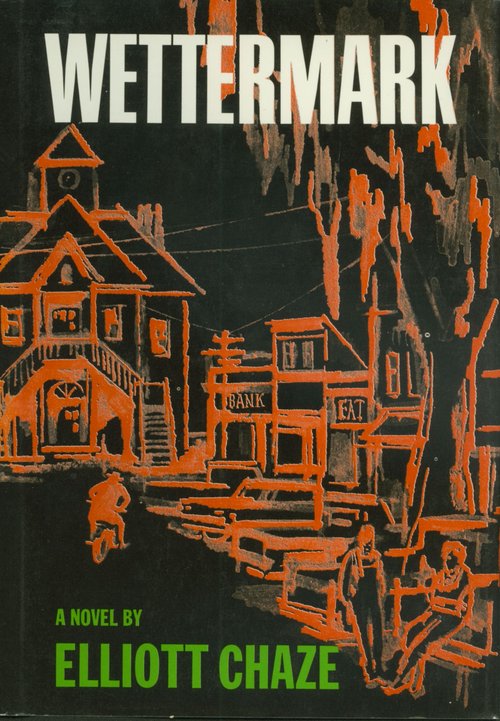
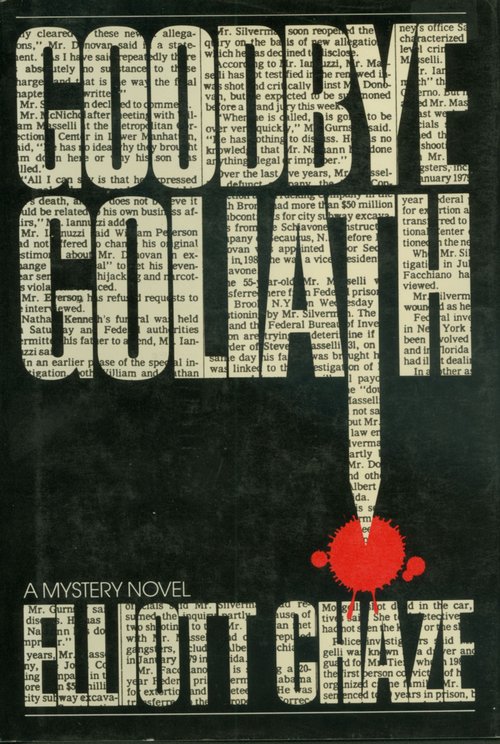
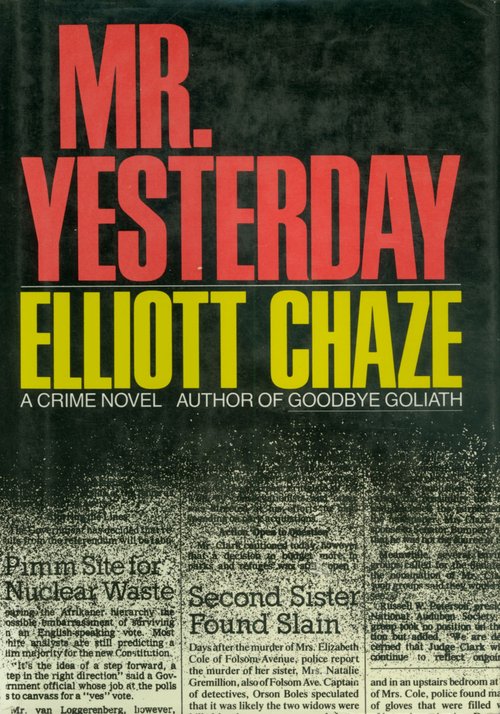
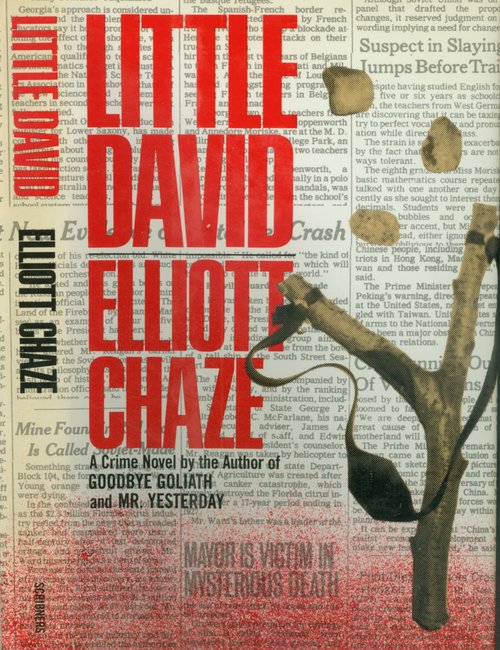
Earle Basinsky. The Big Steal. New York: E. P. Dutton & Company, 1955.
-- The Big Steal. New York: E. P. Dutton & Company, 1955. Inscribed by author.
-- Typed manuscript bound. "The Big Steal." p. 1.
-- Le magot. [Paris]: Gallimard, c.1955. (French Translation of The Big Steal)
-- Death Is a Cold, Keen Edge. New York: New American Library, 1956. Back cover.
Lee Borden. The Devil’s Whisper. New York: Avon, 1961.
Elliott Chaze. Black Wings Has My Angels. New York: Gold Medal Books, 1953.
-- Wettermark. New York: Scribner, 1969.
-- Goodbye Goliath. New York: Charles Scribner’s Sons, 1983.
-- Mr. Yesterday. New York: Charles Scribner’s Sons, 1984.
-- Little David. New York: Charles Scribner’s Sons, 1985.
Borden Deal. Killer in the House. New York: New American Library, 1957.
Charlie Wells. Let the Night Cry. New York: Abelard Press, 1953.
-- The Last Kill. New York: New American Library, 1955. Back cover.
